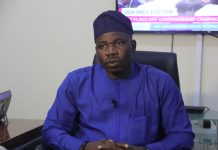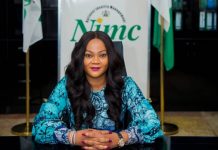Nigeria has in many years lived in a state of doubt and uncertainty. Within these years, numerous analysis and conclusions have been made on critical issues responsible for what has become a Nigerian dilemma over Leadership, nation building and national development.
This is because all the countries compared to Nigeria in 1960 have made visible progress, developed relatively stable politically and economic systems. Many people compared Nigeria to Brazil in the 1960s; others spoke of Malaysia, Indonesia, India, Australia, China etc.
One of Nigeria’s fault lines was for a long time attributed to leadership failures, others suggested defective political and economic structures, and yet others spoke of the Nigerian national character. Well, whatever, the reality is that in comparison to her other contemporaries, Nigeria is a complete disappointment in both expectations and achievements.
This is obvious when one realizes the position of India, Brazil, Indonesia, Australia, China etc. within the present international political and economic system, in comparison to Nigeria.
LEADERSHIP AND NATIONS BUILDING
Leadership and nations building have consistently been Nigeria’s most constant problem before and since independence. Unfortunately, in spite of all good intentions and spirited efforts of some leaders since 1960, these problem have remained a national dilemma.
No generation of leaders, military or civilian, have been able to create an atmosphere of credibility to ensure Nigeria’s claim to a political future as a nation. None has been able to evolve a unifying national ideology that should be embraced either by fellow political elites or by the entire Nigerian populace.
Recently, some Nigerian political leaders have said that “Nigerian unity is not negotiable”. This is an irony because these leaders have forgotten, or have failed to learn the lessons of history.
Nigerian unity is definitely negotiable and must be re-negotiated for it to stand or survive the test of time. The reality over the years remains that in spite of the best efforts of all our leaders past or present, Nigerian unity is not guaranteed.
It is simply, at best, an aspiration and not yet an achievement.
Hence, the statement that Nigerian unity is “not negotiable” is simply a historical fallacy. In fact, our country since independent has been one of the “most and fastest declining states in the world.
WHY DO I TELL YOU ALL THIS
It is important to note that, the disparity between claims to nationhood and the political realities in Nigeria are responsible for the political instability, military coups, sporadic guerilla warfares, crises and violence that have characterized Nigeria’s history.
It is equally the same realities that compels the Nigerian political elites – military and civilian – once in power to quickly split along many lines, particularly, the lines of ethnic origin, religion and region.
The result has been inter-elite rivalries, reciprocal suspicion, hostility of position and status conflict among Nigerian elites.
Throughout our history, the national elites have been engaged in deadly competitions and conflicts of hostile sub-cultures, resulting in various danger signals that often threaten the survival of the country. There is hardly any national issue over which our incoherent national political elites would accept consensus.
Every issue is subject to political maneuvers and intrigues, conspiracies and sabotage of one another or of one group against another. Hence, there exists in Nigeria, almost on a permanent basis, a heightened level of elite insecurity, with its inevitable national psychosis. One thing that is clear is that; for Nigeria unity, nations building and development to be achieved, credible and committed leadership should be our focal point and sustained in the country.
Our experience ought to point to the fact that in spite of our pretenses of unity, the 2015 Presidential Election revealed that the Nigerian society actually remains almost divided with each segment of the region living in its own separate world. The consequences have been that all along, the dangers of a breakdown of the system have been clear to any reasonably interested observer of Nigeria politics, locally and internationally.
WHAT IS THE WAY FORWARD
For Nigerian unity and nation-building to succeed, the leaders need to borrow a leaf from or emulate the experiences of countries that did not ignore the element of pluralism in their respective countries and societies. Nationalism, including ethnic nationalism, is not about to disappear in the world generally, and certainly not in Nigeria, no matter how much we desired it out.
It is still a potent force and all its advocates feel they have a strong case and believe that history is on their side.
We must therefore reform and restructure the political system in a way that compels the allegiance of the various people and that complies with their national or group aspirations. We need a system that can effectively contain or reduce the level of the disintegrative tendencies in Nigerian society.
The leadership must also recognize that any new system for the country must take cognizance of the present national reality that today no single group or bloc, no matter their pretenses to power, can again dominate the Nigerian political system.
We need a system that commands the respect of our people and is seen as fair, just and equitable to all.
Mr. Jomo Iroha is a Public Affairs, Media Influencer and Consultant writes from Lagos. Tel: 07083825570. irohajomo@gmail.com









